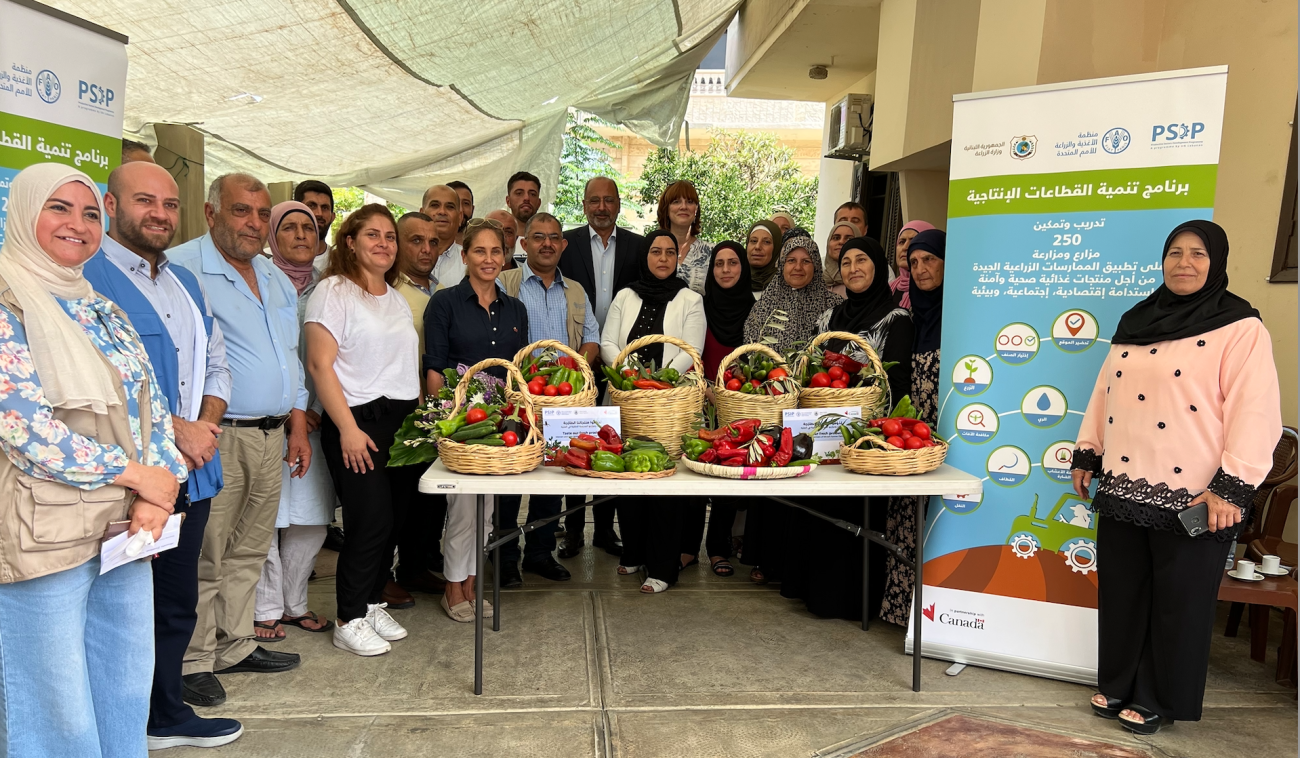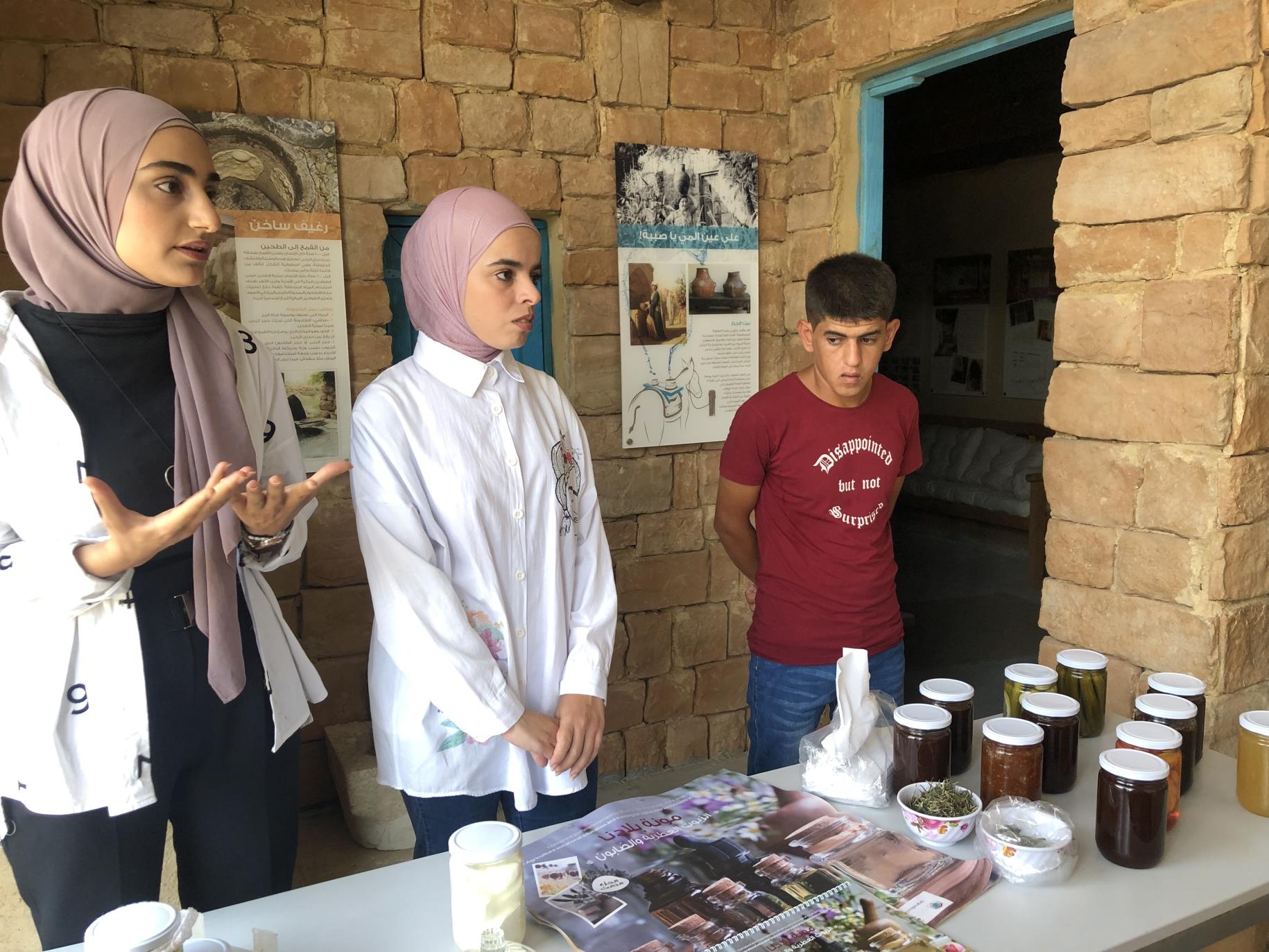Beyond crises: Taking stock of the UN’s impact on Lebanon’s Agriculture Sector

For over three years, Lebanon has been beset by a series of back-to-back crises. From the unprecedented economic and financial downturn of 2020, to the devastating shocks of the Beirut port explosions and the COVID-19 pandemic, few parts of the country have been spared from the impact of this protracted crisis.
As the economy continues to contract, and the import of raw materials becomes more costly, Lebanon’s agri-food and agricultural sector is bearing a particularly heavy toll. Combined with disruptions to trade operations and value chains, this crisis is having severe consequences for food security across the country and the over one million people who depend on the agri-food sector in order to survive.
The UN Productive Sectors Development Program, (PSDP) a joint initiative between the UN in Lebanon and the Government of Canada, is designed to strengthen the agriculture sector in the areas it matters most. The three-year programme, which is funded by the Government of Canada and implemented by UN agencies under the coordination of the Resident Coordinator, has already helped over 2,000 people improve their farming practices as well as develop, run, and maintain their businesses in the agri-food sector.
Earlier this month, the UN Resident, and Humanitarian Coordinator for Lebanon, Imran Riza, joined Canadian Ambassador, Stefanie McCollum, on a visit to Northern Lebanon to see first-hand how the programme was reaching those most in need and help lay the groundwork for more sustainable agri-food systems across the country.

Small businesses defy the odds
The Resident Coordinator began his mission at Abdeh Agricultural Technical School, where he and the Ambassador met ten out-of-school youth entrepreneurs who, despite the economic crisis, were able to put the acquired skills in food production, management, and marketing into practice, thanks to the programme.
“We are here to show our constant support to young entrepreneurs and women-led cooperatives who are striving to sustain themselves and grow,” said the RC. “We are here to reaffirm the commitment of the United Nations with the support of donors, like Canada to uphold the productive sectors, particularly the agri-food sector, that have become the lifeblood of Lebanon’s economy.”
The beneficiaries, particularly women, explained how the various on-the-job and cash-for-work training provided under the programme with the support of partnering NGOs like AVSI Foundation helped them break out of the cycle of household chores, connect with other women, and exchange knowledge and information.
“These specialized trainings in food processing and business management opened for me new horizons and offered me the opportunity to prove myself, become productive, and provide for my family,” explained Hayat, showing the multiplier effect that the program had on her life and other young farmers and entrepreneurs.
The UN Resident Coordinator and Ambassador McCollum also heard from a group of 25 farmers who explained how the FAO training they received under the programme has helped improve their knowledge and skills in sustainable agriculture, increasing by that their production and improving their capacity for safer quality production.
For Ambassador McCollum, this collaborative spirit was striking: “What I found particularly interesting is seeing the synergies existing between beneficiaries, local communities, and partners and the unwavering support offered to women who are growing their businesses with novel ideas and giving back to their communities,” she explained.
Embracing innovation
The Resident Coordinator and the Canadian Ambassador also saw first-hand how the programme supported young entrepreneurs with quality control services and access to smart techniques and advanced technologies and labs for agri-food businesses.
For Hind Nehme, the co-owner of HESTIA, a small business specializing in the production of gluten-free and organic food products, and one of the winners of ILO’s Women Do Business Experience competition held under PSDP, the resources and skills she gained from the training helped expand her business and enter new markets.
“As a celiac disease sufferer, I understood the struggles many people with gluten sensitivity face in finding good quality gluten-free products in the market at a reasonable price. Thanks to the grant I received under PSDP, I was able to buy equipment and food processing machines as well as hire a worker, a graphic designer, and a photographer for marketing purposes,” Hind explained to the delegation.
Capitalizing on partnerships for a sustainable productive sector
Throughout the visit, the importance of strong partnerships with local and international partners to accelerate progress toward the Sustainable Development Goals (SDGs) in Lebanon was clear to see.
With the ongoing contribution and support of Canada, the programme will continue to create new jobs in the agricultural and agri-food sector and support Micro, Small, and Medium Enterprises (MSMEs) with a specific focus women and young people in disadvantaged areas.
Beyond the strengthened capacities and new skills, the young farmers and entrepreneurs from the visit revealed a sense of optimism, empowerment, and drive for growth which the Resident Coordinator described as ‘truly inspiring.’
To learn more about the work of the UN in Lebanon visit lebanon.un.org













